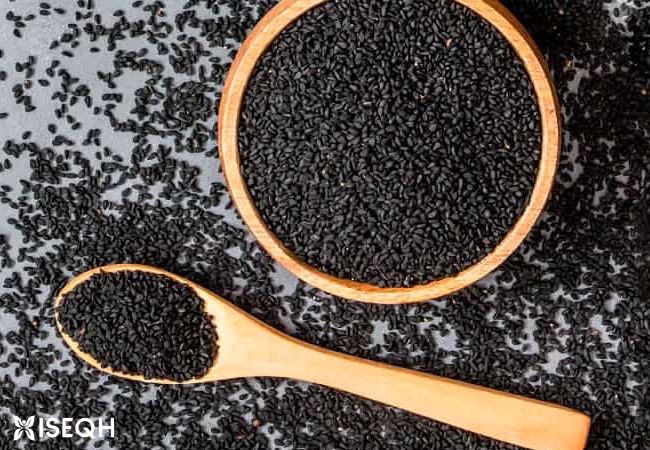
Table of Contents
Introduction
Have you ever heard of black seed oil? It’s an ancient remedy that’s been around for centuries, but it’s recently gained popularity in the modern health world. As a nootropic expert, I’ve extensively researched black seed oil and am excited to share what I’ve learned with you. From boosting immunity to improving skin health, black seed oil has many health benefits worth exploring. So, let’s dive in and discover why black seed oil is the secret to better health and wellness.
What is Black Seed Oil?
As a nootropic expert, I can tell you that black seed oil comes from the seeds of the Nigella sativa plant, which is native to parts of Asia and the Middle East. The oil is extracted from the seeds through cold-pressing, which helps retain the oil’s nutrients and health benefits.
Black seed oil is rich in antioxidants, vitamins, and minerals, making it a potent natural remedy for various health issues. With its long history of use in ancient civilizations and its recent popularity, black seed oil is a fascinating and promising natural remedy worth learning more about.
The Benefits of Black Seed Oil
I can tell you that black seed oil has many health benefits that make it a valuable addition to any wellness routine. Here are five key benefits of black seed oil:
Boosts Immunity: Black seed oil is rich in antioxidants and has been shown to strengthen the immune system, helping to protect against infections and diseases.
Improves Skin Health: The vitamins and minerals in black seed oil make it an effective natural remedy for improving skin health. It can help to reduce inflammation, soothe irritation, and promote a clear, healthy complexion.
Reduces Inflammation: Black seed oil contains anti-inflammatory compounds, making it a valuable natural remedy for reducing inflammation throughout the body.
Supports Digestive Health: Black seed oil has been shown to have a positive effect on digestive health, helping to reduce symptoms of bloating, gas, and indigestion.
Promotes Heart Health: The antioxidants and anti-inflammatory compounds in black seed oil can help to reduce the risk of heart disease by lowering cholesterol levels, improving blood pressure, and reducing inflammation in the arteries.
With its impressive range of health benefits, it’s no wonder that black seed oil is quickly becoming a popular natural remedy for many health issues.
How to Use Black Seed Oil?
I recommend incorporating black seed oil into your daily wellness routine to reap many health benefits. Here are some tips and guidelines for using black seed oil:
Choose a High-Quality Product: Look for a black seed oil that is cold-pressed and organic to ensure that you get a high-quality product free of harmful chemicals and additives.
Start Slowly: If you’re new to black seed oil, start with a small dose and gradually work up to the recommended dosage. This will help your body adjust to the oil and reduce the risk of side effects.
Follow Dosage Recommendations: The recommended dosage for black seed oil varies depending on the product and the individual. Follow the dosage recommendations on the product label or consult a healthcare professional for personalized guidance.
Incorporate into Your Diet: Black seed oil can be taken orally or added to food and drinks. For example, try adding it to salad dressings, smoothies, or tea for an easy and delicious way to incorporate it into your diet.
Be Mindful of Potential Side Effects: While black seed oil is generally safe for most people, it can cause side effects such as upset stomach, nausea, and allergic reactions in some individuals. If you experience any adverse effects, stop taking the oil and consult a healthcare professional.
By following these tips and incorporating black seed oil into your daily routine, you can reap its many health benefits and improve your overall wellness.
Conclusion
I believe black seed oil is a valuable natural remedy that can help improve overall health and wellness. Its impressive range of health benefits, including boosting immunity, improving skin health, reducing inflammation, supporting digestive health, and promoting heart health, make it a must-try for anyone looking to optimize their health naturally.
When incorporating black seed oil into your daily wellness routine, choose a high-quality product, start slowly, follow dosage recommendations, and be mindful of potential side effects. By doing so, you can safely and effectively incorporate this powerful natural remedy into your daily life.
So why not give black seed oil a try? With its rich history of use and promising health benefits, it just might be the missing piece in your wellness puzzle.
References
Ahmad, A., Husain, A., Mujeeb, M., Khan, S. A., Najmi, A. K., Siddique, N. A., … & Anwar, F. (2013). A review on therapeutic potential of Nigella sativa: A miracle herb. Asian Pacific Journal of Tropical Biomedicine, 3(5), 337-352.
Gholamnezhad, Z., Havakhah, S., Boskabady, M. H., & Sankian, M. (2016). The preventive effect of Nigella sativa L. on type 1 diabetes-induced neuropathy in streptozotocin-induced diabetic rats. Journal of Diabetes & Metabolic Disorders, 15(1), 49.
Kooti, W., Hasanzadeh-Noohi, Z., Sharafi-Ahvazi, N., & Asadi-Samani, M. (2016). Phytochemistry, pharmacology, and therapeutic uses of black seed (Nigella sativa). Chinese Journal of Natural Medicines, 14(10), 732-745.
Majdalawieh, A. F., & Fayyad, M. W. (2016). Immunomodulatory and anti-inflammatory action of Nigella sativa and thymoquinone: A comprehensive review. International Immunopharmacology, 28(1), 295-304.
Randhawa, M. A., & Alghamdi, M. S. (2016). Anticancer activity of Nigella sativa (black seed)-a review. American Journal of Chinese Medicine, 44(06), 1077-1101.
Salem, M. L. (2005). Immunomodulatory and therapeutic properties of the Nigella sativa L. seed. International Immunopharmacology, 5(13), 1749-1770.
Seedsman. (2021). Black seed oil benefits. Retrieved from https://www.seedsman.com/en/blog/black-seed-oil-benefits/
Tavakkoli, A., Mahdian, V., Razavi, B. M., & Hosseinzadeh, H. (2017). Review on clinical trials of black seed (Nigella sativa) and its active constituent, thymoquinone. Journal of Pharmacopuncture, 20(3), 179-193.








